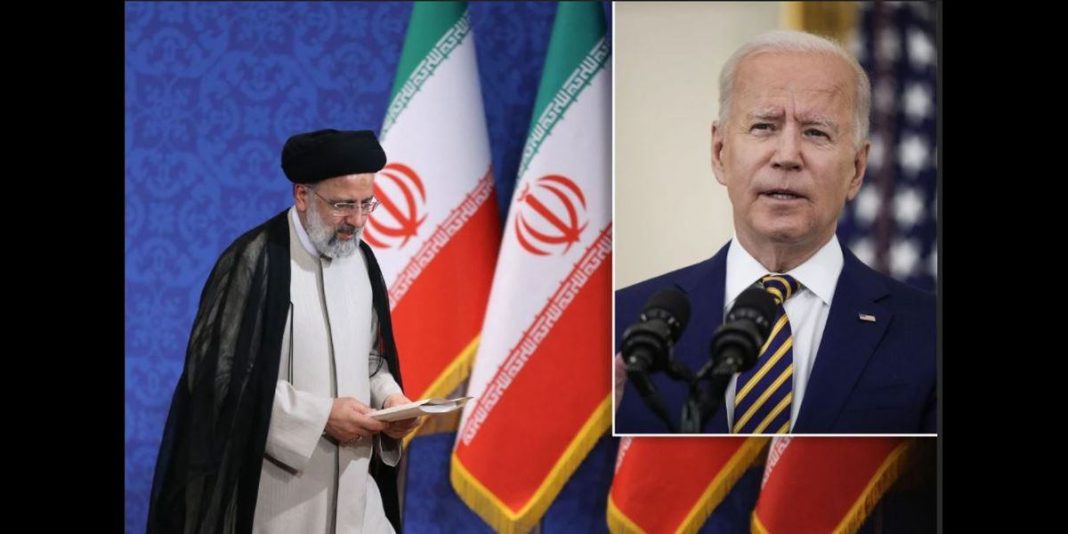The future of the multilateral agreement with Iran, known as the Joint Comprehensive Plan of Action (JCPOA), is uncertain after the withdrawal of the United States on May 8, 2018, despite Iran`s compliance with the deal. In May 2019, Iran began violating the accord, announcing that it would no longer be bound by limits on heavy water and enriched uranium stockpiles. However, there has been a sign of willingness to re-enter the agreement since President Joe Biden took the office in January 2021, who vowed to mend the deal if Iran returns to compliance with its nuclear commitments.
After years of tension over Iran’s alleged efforts to develop nuclear weapons, Iran and global powers, including the United States and five permanent members of the United Nations Security Council (China, France, the United Kingdom, the United States, and Germany), reached an agreement in July 2015. The deal aimed at preventing Iran from acquiring nuclear weapons and lifting the sanctions imposed on Iran. Previously, the Iranian Parliament ratified the Nuclear Nonproliferation Treaty (NPT) in February 1979, agreeing to its goals to prevent the proliferation of nuclear weapons. However, in the 1980s, Iran secretly started pursuing this technology.
Read more: Iran not interested in nuclear talks: US
What did Iran agree to?
In exchange for sanctions relief, Iran agreed to suspend much of its nuclear program and allow inspectors from the International Atomic Energy Agency (IAEA) and the United Nations` nuclear watchdog to monitor Iran’s declared civilian sites and to inspect/monitor any site in the country that they find dubious. The accord prevented Iran from producing either the highly enriched uranium or the plutonium that could be used in nuclear weapons. Moreover, Iran agreed that its Fordow, Natanz, and Arak facilities pursued only civilian work.
However, the efficacy of the deal has been in doubt since President Trump pulled the United States out of it in 2018, claiming that the agreement did not address Iran’s ballistic missile program. Furthermore, he was of the view that the deal cannot prevent Iran from building and pursuing the nuclear arsenal. In retaliation for the U.S.’sattack on prominent Iranian figures in 2020, Iran also resumed and accelerated some of its nuclear activities.
The incident of January 2020, when the U.S. targeted Qasam Soleimani, a top Iranian general, widened the gap between Iran and the US. Consequently, Iran announced that it would no longer limit its uranium enrichment and began constructing a centrifuge production Centre at Natanz. Additionally, in December 2020, the Iranian parliament passed a law in a bid to boost uranium enrichment and block inspectors from international organizations.
What is the future of the nuclear divide between the US and Iran?
The US withdrawal from the deal, combined with Iran’s defiance, has widened the nuclear divide between Washington and Tehran. Iran wants the lifting of all sanctions as well as demands to guarantee that the US will not quit the accord again as it did during Donald Trump’s period. In June, the newly elected Iranian president indicated that he would adopt a stauncher approach than his predecessor in nuclear negotiations. After taking office, President Joe Biden stated that the US would return to the deal if Iran returns to compliance, indicating a willingness to rejoin the deal.
Read more: Israel begs US to suspend Iran nuclear talks
The week or two ahead would be crucial as Iran and the United States are set to resume negotiations to revive the nuclear deal after a long pause that puts prospects of rejoining the historic accord in doubt. While a breakthrough is not expected, analysts believe that the talks will shed light on how Iran will approach diplomacy under President Raisi, whose government hasbeen emphasizing the Iranian demands before returning to the table for negotiations.
The Biden administration needs to assure Iran that they are negotiating in good faith with long-term mutual gains. Lifting the sanctions would be the most important step in this direction, as it would end the strangulation that has crippled Iran’s economy and resulted in endless misery for citizens. Also, it would be a restoration of trust. For Iran, it is important to respond positively and responsibly to such overtures so that it can rebuild its economy and achieve its foreign policy objectives.
The author is working as a Research Officer in Balochistan Think Tank Network (BTTN). The views expressed in this article are the author’s own and do not necessarily reflect the editorial policy of Global Village Space














